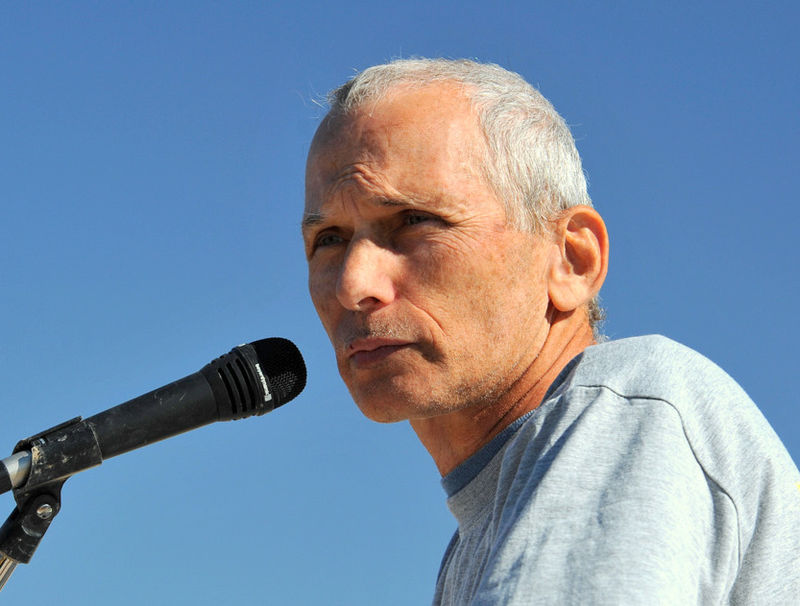Minister of Public Security Omer Barlev announced Monday that he was establishing a committee to investigate bombshell allegations that the Israel Police engaged in widespread extrajudicial spying against dozens of public leaders, activists, and individuals.
Pegasus is widely regarded as one of the most powerful cyber-surveillance tools on the market, enabling operators to practically take complete control of a target’s phone, download any data from it, and activate the device’s camera or microphone without the target’s knowledge.
“I have decided to set up a government-appointed commission of examination to investigate in depth the violation of the civil rights and privacy of citizens in the years in question,” Barlev said. Unlike a state commission of inquiry, a government commission, known under the law as a government-appointed committee of examination, does not require approval by the full cabinet for its establishment.
According to Barlev, preliminary data indicated that “any failures occurred under prior [police] commissioners, former public security ministers, and earlier governments.”
“Under my watch, these failures will not happen. The police are under my responsibility and my authority, and I will make sure that if there was a violation of democracy in previous years, I will denounce it and not let it be repeated.” Bar-Lev added.
Just prior to his departure from office, former Attorney General Avichai Mandelblit designated the members of a committee of inquiry investigating the matter, which will be chaired by Deputy Attorney General Amit Marari.
The state comptroller announced his own probe into the allegations.
Calcalist was first to report the story saying that police hacked into the phones of government officials, mayors, activists, journalists, and family members and aides of former Prime Minister Benjamin Netanyahu.
Calcalist published a list which is including the then-secretaries of finance, justice, communication, and transportation; businessman Rami Levy; Ilan Yeshua, the former CEO of Walla and a key witness in Netanyahu’s trial; Netanya Mayor Miriam Feirberg; Avner Netanyahu, the former prime minister’s son; leaders of Ethiopian-Israeli protests against police, West Bank settlers just ahead of scheduled evacuations of illegal outposts; and many more without any judicial approval or oversight.
Calcalist blamed such crimes on former Israel Police Commissioner Roni Alsheich, who served from 2015 to 2018, Yoav Kahlon, then-chief of the police technology department, and Yoav Hassan, head of the police’s SIGINT division.
Israel Police Commissioner Kobi Shabtai had earlier Monday called for an external probe into the charges.
Shabtai who takes office in January 2021 said in a statement. “In light of recent reports regarding the Israel Police’s use of technological systems in the years preceding my election, I requested that the public security minister establish an external and independent judicial review committee chaired by a judge to thoroughly investigate the issue. The purpose of such an investigation, he explained, is both to restore public trust in the Israel Police and to regulate the Israel Police’s use of technology.”
The news drew condemnation from a broad cross-section of parliamentarians and public officials from across the political spectrum, who described the accusations as alarming and highly concerning.
Naftali Bennett, Israel’s prime minister, stated that “if the reports are true, they are very serious.”
Bennett stated that while Pegasus and similar spyware programs “are critical tools in the fight against terrorism and serious crime,” they were not intended for widespread ‘phishing’ among Israeli citizens or public figures in the State of Israel, and thus we need to ascertain precisely what happened.
President Isaac Herzog stated during a press conference that he felt compelled to respond to the claims. And that the claims require a “thorough and in-depth inquiry.”
“When it comes to maintaining the law, the law enforcement apparatus cannot afford to be reckless. Those who enforce the law, more than anybody else, must be careful in all respects,” Herzog said. “We cannot afford to lose our democracy, our police, or our public trust in them.”
Labor MK and committee chairman Gilad Kariv called for a state commission of inquiry into the charges during a hearing of the Knesset Constitution, Law, and Justice Committee on Monday morning.
He stated that an investigation must be performed independently of the Justice Ministry, “since, among other things, the police oversight must be investigated.”
Tamar Zandberg, the environment minister, stated that the claims “leave little doubt: This is an earthquake that deserves nothing less than a state commission of inquiry.” Zandberg rejected the notion that “a democratic state, like the last dictatorship, spies on its citizens.”
Ayelet Shaked, the Interior Minister, stated that “the Knesset and the general people want answers – now.”
In a statement reiterating requests for a state investigation, Diaspora Minister Nachman Shai stated that “in a democracy that upholds the rule of law, the police cannot be law unto themselves.”
Karine Elharrar, the energy minister, stated that the findings cannot be disregarded “if we are proponents of democracy.”
According to her, the alarming charges “demand an extensive examination that finally results in operational findings.”
Other members of the Knesset committee from both the coalition and opposition parties supported the request for an immediate investigation of the allegations.





